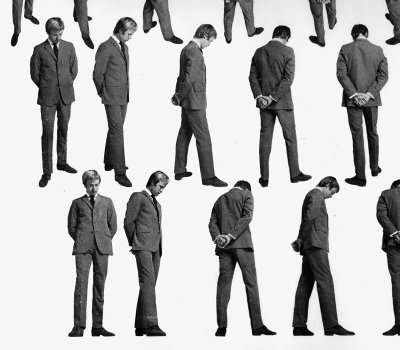|
Pride—standing up tall like a mountain. Humility—meekly submitting to authority. These two concepts are diametrically opposed, yet they come together in the names of this week’s Torah portions, Behar and Bechukotai. 
Behar means “On the mountain,” a reference to Mount Sinai, the mountain on which the Torah was given. Bechukotai means “In my statutes,” a reference to the blessings that will come upon us if we fulfill the Divine decrees.
Generally, when two Torah portions are combined, their themes are combined as well. Yet these two names denote opposite themes. A mountain is a symbol of pride; accepting statutes is a symbol of humility and submission.
Yet there is a way for the two to be intertwined. There is pride that comes from one’s own sense of greatness and accomplishment. There is another type of pride, though, that is really humility. It is a pride that comes from one’s complete identification with G-d and submission to His will. In such a case, one no longer feels like an independent entity; one’s entire self-concept is bound up with G-d.
When it comes to displaying pride in one’s Jewishness; in standing firm on a point of Jewish custom or tradition, regardless of outside pressure—this is not a sign of lack of humility. On the contrary; this strength, to stand tall “as a mountain” comes from one’s rock solid core—the inner Jewish soul—an actual part of G-d Above.
Every Jew must remember that only our physical bodies were handed over into exile and are subjugated to the surrounding culture. However, our souls were never sent into exile. No regime, no government, no institution has power over the Jewish soul, to tell us how we must conduct ourselves, when it comes to fulfilling a matter of Torah or mitzvot.
With this we can understand the relationship between the names of the two Torah portions, Behar and Bechukotai. Behar, on the one hand, denotes pride and strength. Bechukotai, meaning “In My statues,” reflects on one’s subjugation to the Divine law. Yet the two are intertwined. When one is truly bound up with G-d, one feels a sense of pride, not from one’s personal accomplishments but out of one’s absolute identification with G-d.
This identification with G-d, this sense of uplift, expresses itself through a dedication to fulfilling every one of the Divine decrees, great or small. The word Bechukotai also has the root of chakikah, engraving. When letters are engraved in stone, they become an actual part of the stone. This is unlike ordinary written letters, which are formed by applying a separate substance, ink, to the paper. When a Jew performs mitzvot, the effect is not simply grafted onto his character, but becomes part and parcel of his identity.
Fulfilling mitzvot in this manner brings about the true reward for mitzvah observance. One senses the goodness inherent in the Torah and its laws. G-d, Who is the essence of good, provides goodness in abundance in all areas, spiritual as well as physical.
(Based on an address of the Lubavitcher Rebbe, Likutei Sichot vol. 22, p. 159)
|
